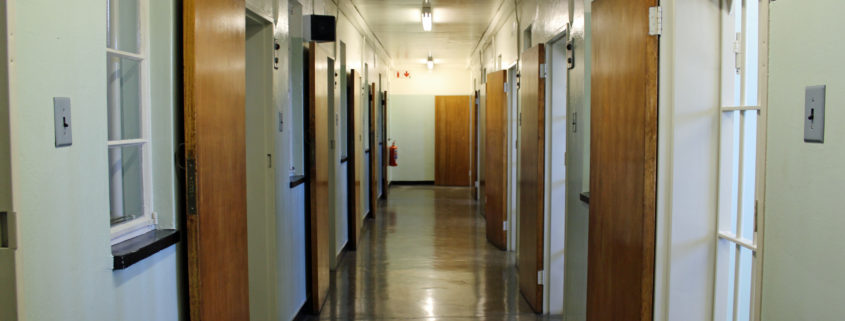
This is, in many ways, the golden era of criminal justice reform. The tough-on-crime policies that drove a mass incarceration epidemic during the 1970s and 80s are no longer in vogue. Even some conservatives acknowledge we jailed too many people of color, destroying communities for minor infractions or none at all. With crime at historic lows, there is a growing consensus that our criminal justice system must be fixed.
In New York State, we are lurching in the right direction but have a long way to go. As a Democrat running for State Senate — and a journalist who has written about criminal justice issues in the past — I know we are far from the promised land. We keep innocent people in jail because they’re too poor to afford bail. Trials can drag on for years, locking people away who are never even charged with crimes.
I remember how stunned and heart-broken I was when I first read about Kalief Browder. A young man who spent three years on Rikers Island without being convicted of a crime, Browder committed suicide at the age of 22.
It was a tragedy that was entirely preventable. Browder was stuck in a Rikers hellhole because trials, due to a variety of loopholes, can be repeatedly delayed in New York State. A right to a speedy trial doesn’t really exist.
As a journalist, I’m used to writing about problems and trying to hold powerful people accountable. As a candidate, I now have a chance to make a difference — and ensure that no one has to go through what Kalief Browder went through.
We won’t fix this until we fix the State Senate. Republicans like my opponent Marty Golden do not support any kind of criminal justice reform. They prefer the rotten status quo.
Below is my criminal justice reform plan, in full.
If you have any questions, concerns, or want to get involved in the campaign, email me [email protected]
End Cash Bail
Thousands of innocent New Yorkers are rotting in our crumbling jails simply because they can’t afford bail. This is unjust and un-American. Those who are held on bail are more likely to plead down to a lesser charge in order to avoid spending an extended amount of time in our city’s deteriorating jail system. More than two-thirds of those admitted to our jails for 30 days or less are there simply because they can’t come up with the cash to make bail. Like New Jersey, which has effectively eliminated cash bail without seeing any spike in crime, we must end the two-tiered justice system that does nothing to keep New Yorkers safe but does significant damage to indigent defendants.
Speedy Trial Reform
New York State supposedly guarantees the right to a speedy trial to those who are charged with a crime. However, due to countless loopholes that allow for months to go uncounted against the speedy trial clock, defendants have been forced to return to court repeatedly or, even worse, have been forced to await trial while being held in jail due to their inability to pay bail. There is no better example of this abject failure of our criminal justice system than the story of Kalief Browder — yet five years after his release and three years after his death, State Senate Republicans have still refused to work with Democrats to fix this unjust system. New York State needs speedy trial reform immediately to ensure that the injustice suffered by Kalief Browder is never repeated.
Automatic Discovery
The discovery process is a crucial, yet largely unknown, piece of the criminal justice puzzle. In New York State, prosecutors have an ample amount of control over what information they share with the defense and when they do so. This can be as late as the night before a trial begins, as was the case for Ikiesha Al-Shabazz, a defense attorney who received a box of crucial evidence that exonerated her client. In order to have a fair system, we must take action to ensure that defense attorneys have access to the information they need to make an informed judgement on the next steps for their clients. It is impossible for defense attorneys to make informed decisions without real reform coming to the discovery process. Thirty-five states have open discovery rules that require information sharing significantly earlier in the process. These are tested reforms that work across the country and it is time for New York to join the 21st century.
Parole Reform
Our parole system is broken. According to a research brief released by the Columbia University Justice Lab, New York City has seen historically low crime numbers along with a jail population below 9,000 for the first time in three decades. This has been driven by declines in individuals being held for pre-trial misdemeanors, non-violent felonies, and violent felonies. While those numbers continue to fall, one is persistently rising: the number of individuals held on state parole violations. A parole violation can be anything from missing a curfew to associating with a person with a criminal record. This is a particularly troubling issue in New York City. Between 2016 and 2017, the average daily population of parole violators in New York City jails increased by nearly 20 percent while the overall population decreased by nearly 5 percent. New York needs to implement common-sense reforms that have proven to be effective across the country, including adopting a system of graduated sanctions and rewards, instead of automatically dumping people into jail for minor infractions. We need to cap jail terms for minor parole violations and require a judicial hearing before parole officers can jail people accused of technical violations. We must also shorten parole terms for people who stay out of trouble for specified periods of time.
Marijuana Legalization
We must stop criminalizing marijuana possession. New York State ranks second out of all 50 states in terms of marijuana-related arrests made per 100,000 people. In 2017, 16,925 people were arrested for low level marijuana possession in New York City, a decline of only 1 percentage point from the 2016 total of 17,097. Statistics show that these arrests are more prevalent in low income communities of color. This represents an enormous waste of criminal justice resources on the remnants of the failed war on drugs. The New York State Senate must move to legalize, regulate, and tax marijuana. With the hundreds of millions raised from legalization, we can help plug a looming state budget deficit.
Felony Disenfranchisement
According to the Sentencing Project, approximately 6 million Americans are disenfranchised due to felony convictions. New Yorkers who are in prison or released on parole are not allowed to vote. However, once released or upon the completion of their parole, their voting rights are restored. While the current situation is better than many states, including those where voting rights are never restored for convicted felons, the system does create confusion regarding probation and parole and falls behind states like Illinois, where only currently imprisoned felons are disenfranchised, and Maine and Vermont, where felons never lose the right to vote. Voting is a pro-social activity that can aid a person’s transition from incarceration to constructive, engaged roles in their community. New York State must move to address and rectify this policy that is rooted in historical racism.
Consolidate the Court System
There are 11 trial courts in New York and one in California, which has twice our population. Divorces are judged by the State Supreme Court but all other related matters like child custody, domestic violence, and divorce agreements are done in Family Court. What does this mean? Cash-strapped families have to go to multiple courts and pay extra fees during the most difficult times of their lives. Money and time is wasted on administration. To make matters worse, New York City and Upstate have different rules regarding judges sitting on other courts when a vacancy comes up. I will join the fight led by the New York City Bar Association to consolidate our courts and bring a rational, progressive, and fair judicial system to New York.


